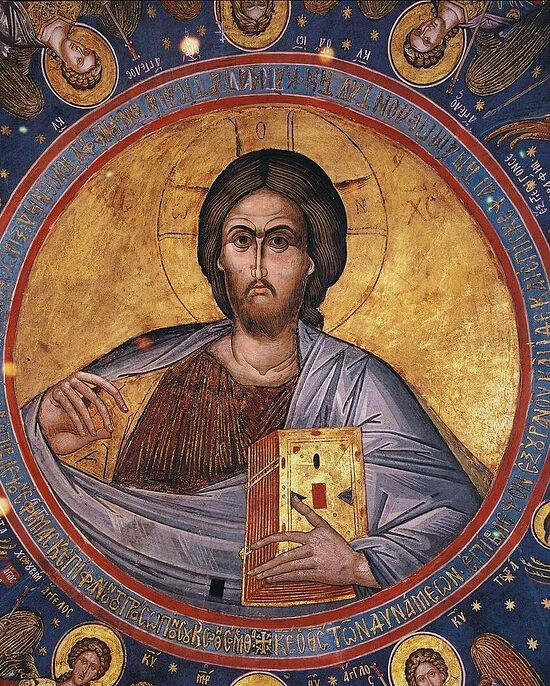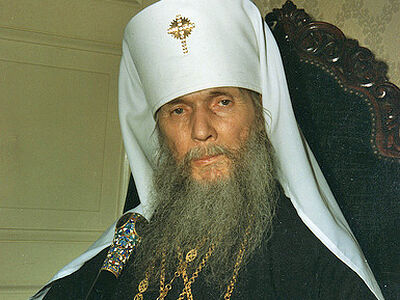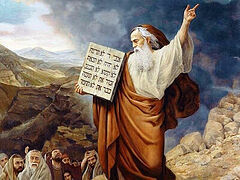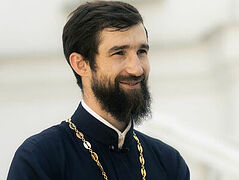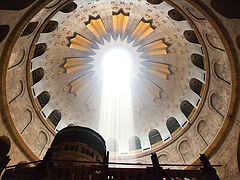In the previous chapter we have seen that our first and basic obligation to God is our love for Him. It is self-evident that this love is demanded from us and that we should know Whom we must love. Man will not and cannot love those whom he does not know.
We cannot but notice that this responsibility is one of the least observed today. In earlier times, it was different. Then there was interest in theological questions and religious knowledge deeply seized Christian souls. St. Gregory the Theologian testifies that in his time even tradeswomen at the market, instead of selling their wares, preferred to argue about the consubstantiality and “seeming-substantiality” of the Son of God. Now, many intellectuals, sometimes even those writing and speaking about various purely Christian topics are positively afraid of any kind of theology. They consider all its questions and clarifications as somewhat artificially scholastic and far removed from life.
From here stems the dreadful religious ignorance of not knowing the basic truths of our own faith, surprising us so much in our days.
Take, for example, intelligent, educated Russian people en masse. They will enumerate without making a mistake all the Czars of the House of Romanoff, the main Russian writers, and so forth. It is considered shameful for an educated person not to know this. But ask them to name the most important dogmas of the Christian faith or the names of Christ’s Twelve Apostles (that is, people who did immeasurably more for man than any Czar or writer), in nine out of ten cases, the result will be very sad. Even worse is that the ignorance in this area is not at all considered shameful and people admit this with a light heart.
No, it is certainly undoubtable that for each Christian it is absolutely necessary to have an idea about the content of his faith and its primary truths, about the dogma of the Trinity, Divine Love, Incarnation, the redemptive death and resurrection of the Savior, about the future fate of the world and man, and so forth. These questions are neither alien nor boring for man, but full of life and significant insofar as the very meaning and destiny of his life is decided by them.
All these questions, of course, come together into one: does God exist and Who is He? These questions are of exceptional importance even for people of little faith. But for faithful people to know God is to know what He means for us and further, what His Will is regarding us; this knowledge is most important and most precious in life. Christian life itself is first determined precisely by the knowledge of God. The Lord Himself while praying to His Father before His suffering said that This is life eternal, that they might know thee the only True God and Jesus Christ, Whom thou hast sent (John 17:3).
From all this we see that knowing God is our immediate Christian obligation. The path towards it, besides the study of theological works, is reflecting upon God. Thinking about God is that spiritual mood where man purposefully brings into his consciousness and supports in it an image of God, His highest characteristics, the work of our salvation, our eternal future, and so on. Such thoughts about God were beloved by our Christian ascetics but for many, many of us, they are unfortunately completely unfamiliar.
Of course, that knowledge of God, which we are speaking of, is by no means, the intellectual receptivity by memory of the positions of our Christian teaching about faith and life. Christianity is an actual life and the experience of the human heart; thus, it is received by people in different ways. The more a Christian lives his personal life with the truths and commandments of his faith, manifested in the inner experiences of a spiritual struggle and suffering when trying to live by Christ’s Holy Gospel, the deeper has he assimilated Christianity. And on the contrary, if man relates to his faith drily, only outwardly and formally, and is not controlled in his personal life by the calls from Christ’s Holy Gospel, then he does not accept Christianity into his soul and heart, and the deep content of the truths of the Christian faith will remain alien to him.

